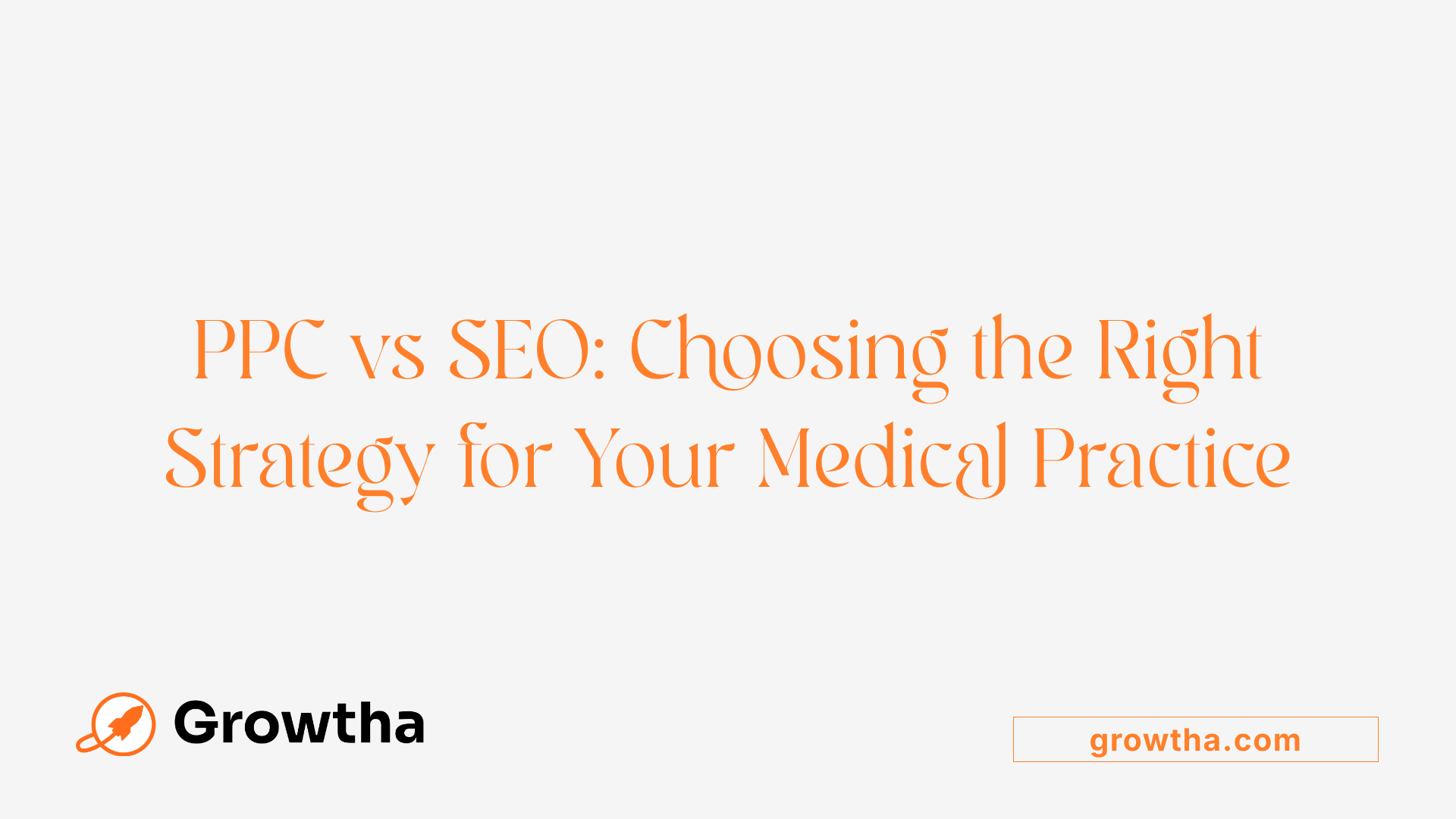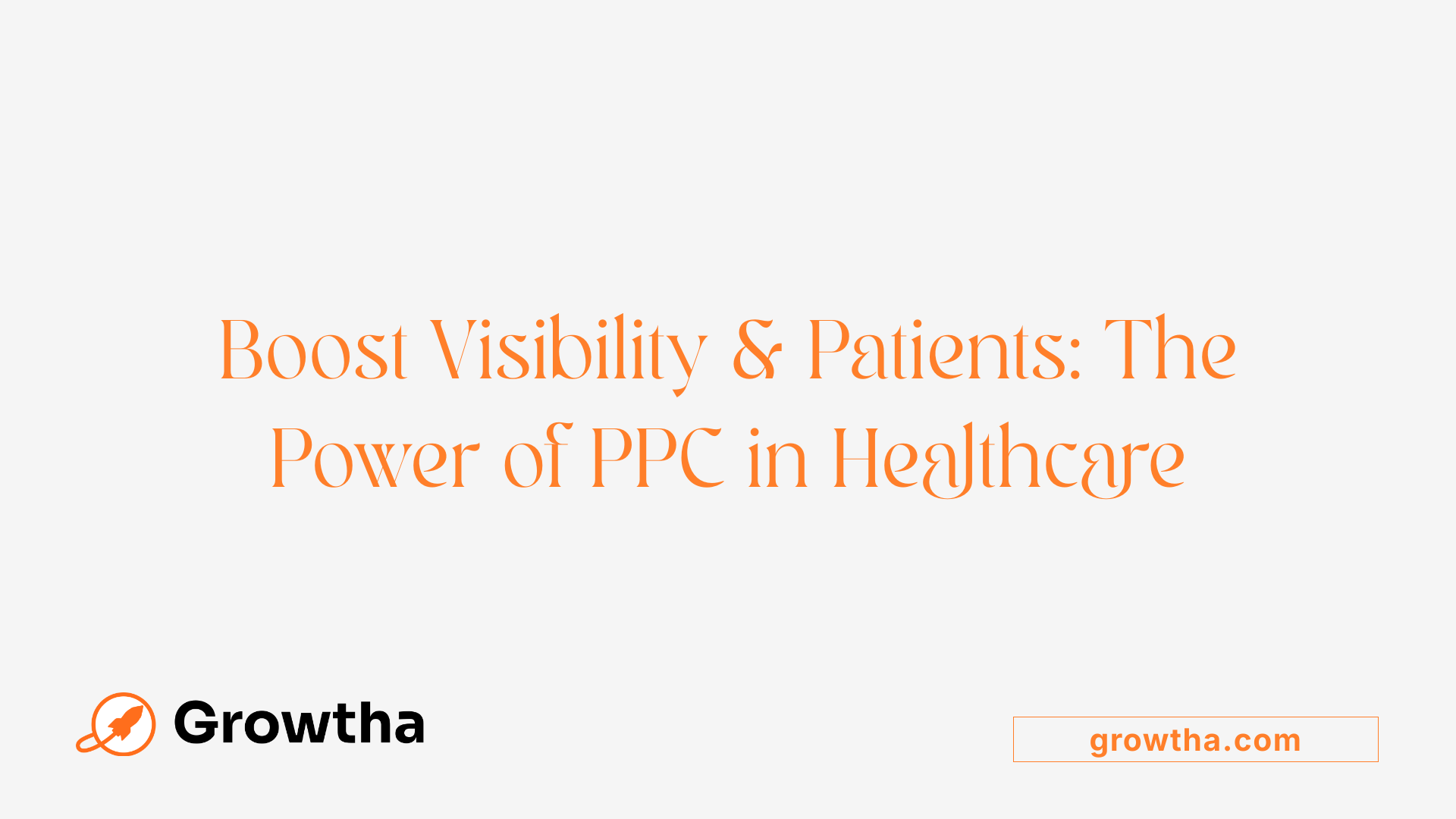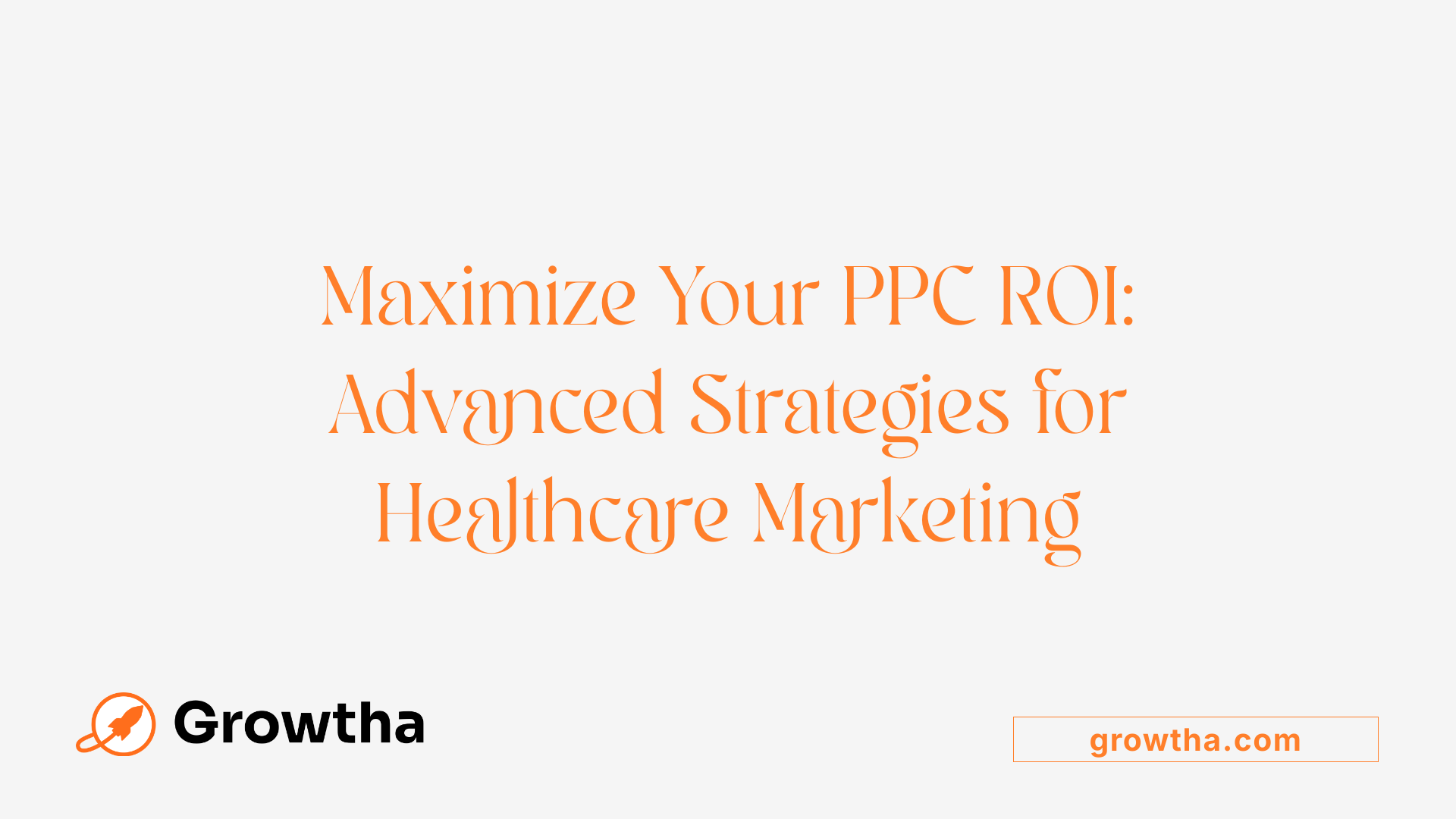Does PPC Help SEO for Medical Practices?
Maximizing Digital Visibility for Healthcare Providers


Does PPC Help SEO for Medical Practices?
Understanding the Synergy Between PPC and SEO in Medical Marketing
In today’s competitive medical landscape, leveraging both paid and organic search strategies is vital for establishing a strong online presence. Pay-per-click (PPC) advertising and search engine optimization (SEO) each offer unique advantages, and their integration can significantly enhance patient outreach, engagement, and conversion. This comprehensive article explores how PPC supports SEO in healthcare, the benefits of combining these strategies, and actionable tips for medical practices aiming to optimize their digital marketing efforts.
The Core Differences and Similarities Between PPC and SEO

What makes PPC an essential tool alongside SEO in medical marketing?
PPC (pay-per-click) advertising is a vital component of healthcare marketing because it offers immediate visibility and highly targeted advertising options. Unlike SEO, which takes months to build an organic presence, PPC campaigns can have your practice appearing at the top of search results within hours. This instant placement is especially beneficial in competitive markets or when promoting time-sensitive services or offers.
PPC allows healthcare providers to target specific demographics, geographic areas, and patient search behaviors precisely. With measurable metrics like clicks, impressions, and conversions, practices can evaluate and optimize their campaigns in real time. Additionally, PPC's flexibility enables quick adjustments to bidding, ad copy, or targeting parameters based on market conditions.
When combined with SEO, PPC helps practices achieve a balanced strategy—immediate patient outreach with sustained organic growth. PPC supports short-term goals like new service launches, while SEO nurtures long-term authority and trust online. This synergy maximizes overall visibility, enhances patient acquisition, and leads to better return on investment.
What are the benefits of combining PPC and SEO for medical practices?
Integrating PPC and SEO creates a powerhouse marketing approach that maximizes online reach and effectiveness. SEO builds a robust, ongoing presence by enhancing website content, improving rankings, and establishing authority through backlinks and local search optimizations. This long-term approach attracts steady organic traffic and fosters trust with prospective patients.
Meanwhile, PPC provides immediate exposure, capturing high-intent search traffic quickly. It allows practices to promote special offers, new services, and location-specific campaigns instantly. By running both strategies concurrently, practices can cover different stages of the patient's search journey—PPC generates quick leads, whereas SEO encourages ongoing engagement.
Insights from PPC campaigns, such as high-converting keywords, inform SEO content strategies and vice versa. For example, data on what keywords drive traffic and conversions can be used to optimize website pages for organic rankings. Similarly, organic search data can highlight keywords worth bidding on in PPC.
Overall, combined efforts lead to increased brand visibility, more patient inquiries, and higher conversion rates, ensuring marketing budgets are used efficiently and effectively.
How do PPC and SEO strategies complement each other in medical marketing?
PPC and SEO work together by leveraging their respective strengths for comprehensive search engine visibility. SEO focuses on optimizing website structure, content, and local SEO signals to rank higher naturally over time. PPC, on the other hand, ensures instant top placements via paid ads.
Sharing keyword insights is a practical way these strategies complement each other. PPC campaigns can reveal high-performing, high-conversion keywords that inform SEO content creation. Conversely, strong organic keywords can reduce reliance on paid ads, lowering costs.
PPC can also re-engage visitors who initially found the practice through organic search by using retargeting ads. These ads serve as reminders and encouragement to convert, increasing overall patient engagement.
Moreover, high-quality landing pages used in PPC campaigns can be optimized for SEO, creating a self-reinforcing cycle. This integrated approach ensures both quick wins and sustainable growth, extending reach and fostering trust.
How does PPC advertising support SEO efforts in healthcare?
PPC supports SEO by providing rapid data insights and immediate visibility that can inform and enhance organic strategies. Since Google and other search engines do not allow paid campaigns to influence organic rankings directly, PPC does not impact SEO rankings but works alongside them.
Running PPC ads lets practices test messaging, keywords, and landing pages via A/B testing, revealing what resonates with patients. High-performing ads and search terms can guide content development and keyword focus for organic SEO efforts.
In addition, PPC increases overall site traffic and brand visibility, which can generate more backlinks, reviews, and social signals—factors that bolster organic rankings. Local targeting through PPC also complements local SEO efforts like optimizing Google My Business listings.
Together, PPC and SEO form a powerful strategy that delivers immediate results while steadily building long-term search authority.
What strategies can medical practices use to integrate PPC with SEO?
Successful integration begins with sharing data between PPC and SEO teams. Use PPC campaign insights to refine SEO keywords, content, and meta descriptions. Conduct comprehensive keyword research that benefits both channels, focusing on high-intent, relevant terms.
Create dedicated landing pages for PPC campaigns that can also serve for organic rankings. Segment campaigns by audience type (patients, physicians) and geography to tailor messaging and optimize relevance.
Regularly update and audit both strategies, tracking performance metrics such as click-through rates, conversions, and rankings. Adjust bids, targeting, ad copy, and organic content accordingly.
Ensure compliance with healthcare advertising policies and utilize features like ad extensions, geo-targeting, and responsive ads to maximize effectiveness. This coordinated effort leads to improved visibility, increased patient inquiries, and a resilient online presence.
Does PPC advertising influence organic search rankings in healthcare?
PPC advertising does not have a direct impact on organic search rankings because search engines like Google keep paid and organic listings separate. However, PPC can indirectly support organic SEO by increasing overall traffic to the website, boosting brand awareness, and providing insights into effective keywords.
Data from PPC campaigns can highlight high-converting search terms, which can then be prioritized in organic content strategies. Additionally, increased traffic from PPC can lead to more engagement, reviews, and backlinks—all of which are beneficial for organic search rankings.
While PPC enhances visibility and can generate immediate leads, it complements but does not replace the importance of a strong organic presence.
What are practical tips for using PPC alongside SEO in healthcare marketing?
Start with thorough keyword research from PPC campaigns to identify high-intent keywords for SEO content. Use geotargeting and responsive mobile ads to reach local, mobile-dependent audiences effectively.
Create dedicated landing pages for PPC ads, optimized for conversions and SEO. Align ad copy with website content for consistency and user trust.
Use ad extensions like call buttons and location info to make ads more attractive and accessible. Incorporate local keywords and audience-specific messaging.
Monitor campaign metrics regularly to identify high-performing keywords and ad variants. Adjust bids and targeting accordingly.
Leverage PPC data to enhance organic content, refine keywords, and improve overall search visibility, ensuring a strategic, balanced approach.
What makes PPC a vital component of a comprehensive healthcare marketing strategy?
PPC is essential in healthcare marketing because it guarantees immediate visibility at the top of search results, crucial in competitive or urgent situations. It enables precise targeting of demographic and geographic segments, maximizing the impact of advertising budgets.
Rapid setup and comprehensive analytics allow practices to respond quickly to market trends, promote new services, and measure campaign success effectively. When integrated with SEO efforts, PPC provides a balanced approach—immediate patient outreach combined with sustainable organic growth.
This dual approach enhances overall online credibility, drives new patient acquisitions, and delivers measurable return on investment, making it a cornerstone of effective digital marketing.
The Impact of PPC on Search Engine Rankings and Patient Acquisition

How does PPC influence visibility and patient inquiries?
Pay-per-click (PPC) advertising is a powerful tool for healthcare practices aiming to increase their online visibility almost instantly. When a practice runs PPC campaigns, their ads appear prominently at the top of search engine results pages (SERPs), often above organic listings. This positioning guarantees that potential patients searching for relevant medical services see the practice's offerings immediately. Not only does this lead to higher impressions, but it also results in increased click-through rates, translating into more web traffic and inquiries.
PPC also facilitates precise targeting based on demographics, geographic areas, and search intent, making it highly effective at reaching local audiences searching for specific healthcare services. As a result, practices that leverage PPC can more quickly connect with interested patients, boost appointment bookings, and improve overall patient engagement.
Do PPC ads impact organic rankings in healthcare?
Contrary to some beliefs, PPC advertising does not directly influence a healthcare practice's organic search rankings. Google's policies prohibit paid advertisements from affecting organic listings, ensuring a clear separation between paid and organic search results. However, PPC campaigns can have an indirect, positive effect on SEO efforts.
For instance, data gathered from PPC campaigns—such as high-converting keywords and search behaviors—can inform content creation and technical optimization for the website. This targeted data helps SEO teams optimize website pages for relevant searches, ultimately improving organic rankings over time.
Moreover, increased visibility from PPC ads enhances overall brand awareness and site traffic, contributing to higher engagement metrics that can influence SEO performance. Combining PPC with SEO creates a comprehensive search marketing approach: PPC offers immediate exposure, while SEO builds long-term authority and organic traffic.
How does PPC accelerate patient acquisition and conversions?
PPC is highly effective at boosting patient acquisition because it delivers immediate results. Once a campaign is launched, ads start appearing on search results pages, directing highly qualified traffic to dedicated landing pages optimized for conversions. This immediacy is particularly advantageous in cases of time-sensitive promotions, new service launches, or when practicing in highly competitive markets.
Well-designed PPC landing pages, with clear calls to action and easy contact options such as click-to-call buttons, significantly improve the chances of converting visitors into booked appointments. Continuous monitoring and adjustment—like refining keywords, ad copy, and bids—ensure that campaigns remain relevant and cost-effective. The ability to track detailed metrics such as clicks, conversions, and cost-per-acquisition allows practices to optimize their campaigns continually.
Through these efforts, PPC not only generates quick influxes of potential patients but also helps practices refine their marketing strategies based on real-time data, increasing overall patient inquiry rates and appointment numbers.
Advanced Strategies for Maximizing PPC's Effectiveness in Medical Marketing

How can medical practices use precise keyword targeting and segmentation?
Effective PPC campaigns start with detailed keyword research. Medical practices should focus on high-intent, specific keywords that potential patients search for, such as the names of particular procedures or services, combined with location-based terms.
Segmenting campaigns allows practices to tailor their messaging to different audiences, such as patients seeking elective procedures versus those needing urgent care. By creating separate ad groups for these segments, practices can customize ad copy and landing pages to improve relevance and conversions.
Using a mix of broad match, phrase match, and long-tail keywords helps balance reach and specificity. While broad match attracts more traffic, long-tail keywords typically convert better due to higher relevance.
How do ad extensions and geotargeting enhance healthcare PPC efforts?
Ad extensions, including call buttons, location info, and appointment links, add extra value to ads by providing immediate contact options and vital information without users clicking through. Call extensions are especially effective since many patients prefer calling to book appointments.
Geotargeting ensures ads are shown only to potential patients in specific geographic areas. This focus maximizes local visibility and reduces wastage of ad spend on irrelevant audiences.
Combining ad extensions with geotargeting makes campaigns more engaging and ensures that the right people see the right message at the right time.
Why are A/B testing and conversion tracking essential?
A/B testing involves running two versions of an ad or landing page to see which performs better. This process helps identify the most compelling headlines, ad copy, images, or calls-to-action, leading to higher click-through and conversion rates.
Conversion tracking is vital for measuring the effectiveness of campaigns. By setting up tracking pixels or using analytics platforms, practices can monitor how many visitors complete a desired action—such as booking an appointment or contacting the practice.
Regular analysis of this data enables continuous optimization, such as adjusting bids, reallocating budget toward high-performing ads, or refining messaging.
How does incorporating voice search and cross-channel marketing expand PPC impact?
Voice search is changing how patients find healthcare providers. To adapt, practices should include conversational, question-based keywords and FAQs that match typical voice queries.
Optimizing website content for voice search—using clear, concise answers and structured data—can increase visibility in voice-activated searches.
Cross-channel marketing involves running PPC ads across multiple platforms like Google, Bing, Facebook, and YouTube. This approach broadens reach, helps reinforce messaging, and provides a unified patient experience.
Combining these tactics enables practices to engage different patient segments and capitalize on emerging search trends.
| Component | Benefits | Implementation Tips |
|---|---|---|
| Precise Keyword Targeting | Better relevance, higher conversion | Use long-tail and location-specific keywords |
| Ad Extensions | Increased visibility and engagement | Incorporate call, location, and appointment links |
| Geotargeting | Reaches local audiences | Set geographic bid adjustments and radius parameters |
| A/B Testing | Optimizes ad performance | Test headlines, descriptions, and calls-to-action |
| Conversion Tracking | Measures ROI, guides improvement | Use Google Analytics and conversion pixels |
| Voice Search Optimization | Tap into new search behaviors | Use natural language and FAQ formatting |
| Cross-channel Marketing | Expand reach and brand consistency | Run unified campaigns across Google, Facebook, and YouTube |
Healthcare practices implementing these advanced strategies can improve their PPC results significantly. Combining precise targeting with continuous testing and multichannel efforts creates a robust digital presence, attracting more local patients efficiently.
Integrating PPC and SEO for Sustainable Growth
In conclusion, combining PPC and SEO in medical marketing provides a balanced approach that leverages the immediate benefits of paid advertising with the long-term value of organic search. PPC offers quick visibility, precise targeting, and measurable results that can boost patient inquiries and appointments swiftly. Conversely, SEO builds credibility, trust, and sustainable growth through optimized website content and search rankings. When integrated effectively, these strategies reinforce each other—data from PPC informs SEO keyword choices, and organic content enhances paid campaign relevance. Healthcare practices adopting a blended approach can expand their online reach efficiently, adapt to market trends, and ultimately maximize their return on investment, cementing their reputation as accessible and authoritative providers in their communities.
References
- PPC vs. SEO: Which is better for your medical practice? - Tebra
- Why PPC for Doctors Beats Website SEO - RUNNER Agency
- PPC and SEO: A New Chapter in Medical Marketing?
- How Medical Practices Can Drive Growth with PPC and SEO
- PPC And SEO For Surgeons: Contact To Get More Patients
- PPC for Doctors & Physicians - Ultimate Guide 2025
- PPC vs. SEO for Doctors' Offices & Medical Practices - Clicks Geek
- Organic SEO or PPC - Which Is Right for Your Medical Practice?







